Feature: Kenya-China agricultural cooperation aiding hunger fight, rural transformation
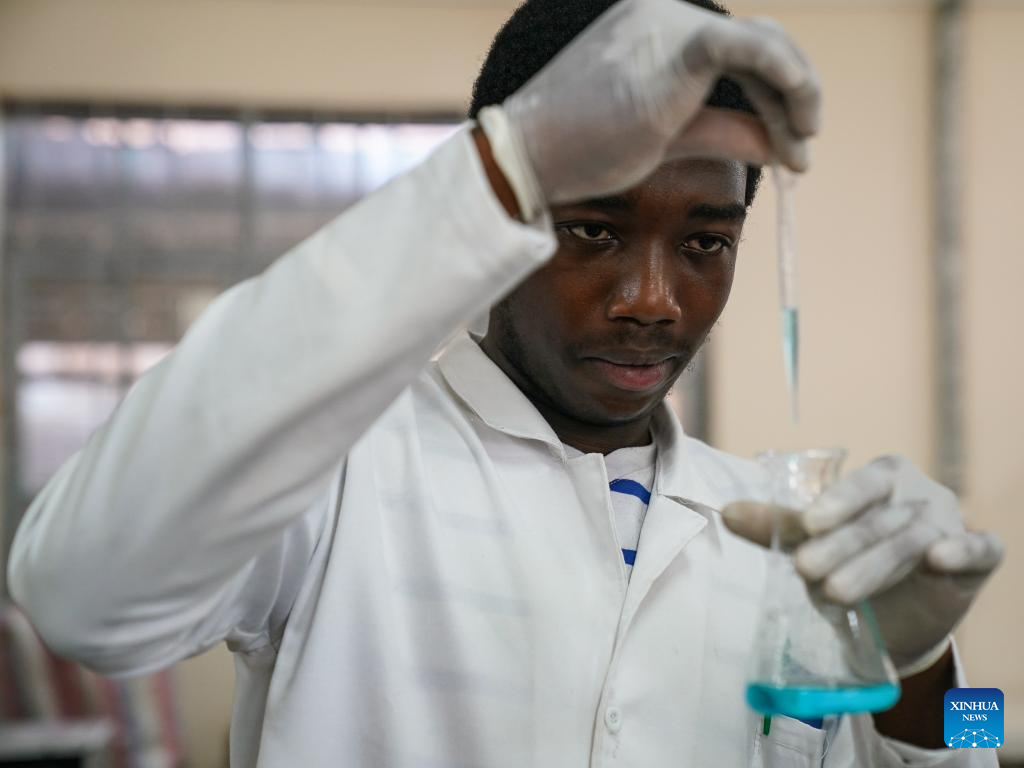
A Kenyan graduate student conducts an experiment at the China-Kenya Belt and Road Joint Laboratory on Crop Molecular Biology at Egerton University in Nakuru County, Kenya, on Sept. 18, 2023. (Xinhua/Han Xu)
NAIROBI, Sept. 20 (Xinhua) -- With a beaming face, Hannah Wanjiku chaperoned visitors inside her farm, located on the edge of a forested hillside in Kenya's Rift Valley county of Nakuru, to take a look at the blooming food crops, including maize, legumes and vegetables.
Next to Wanjiku's family home, a greenhouse converted into a makeshift demonstration farm has drawn the curiosity of local smallholder farmers keen to learn about the cultivation of high-yielding tomato varieties.
The retired teacher is a beneficiary of a research partnership between Kenya's Egerton University and China's Nanjing Agricultural University that has fostered the development of pest-, drought-, and disease-tolerant crops to combat hunger, malnutrition, and rural poverty.
"We look forward to accessing new farming technologies from China to help boost crop yield and address challenges facing local farmers like erratic rains, high cost of manure and seeds," Wanjiku told Xinhua on Monday at her farm.
Forged in the 1990s, the cooperation between the two universities has revolved around research on hybrid crops as well as training of farmers and extension workers on improved agronomic practices, said Richard Mulwa, deputy vice-chancellor of Egerton University.
Mulwa singled out the China-Kenya Belt and Road Joint Laboratory on Crop Molecular Biology, domiciled at Egerton University, for acting as a hub for the research and development of high-yielding crops through leveraging Chinese technologies and expertise.
Mulwa said the modern laboratory, whose plaque was unveiled Monday, is expected to facilitate groundbreaking research, breeding, and release of crops that can withstand climatic stresses.
According to Mulwa, the laboratory will also serve as a "nerve center" for knowledge and technology transfer, besides training experts from the eastern African region on breeding climate-resilient food crops.
"The state-of-the-art molecular laboratory will be utilized to change the lives of our farmers," Mulwa said, adding that the laboratory will help local scientists select and breed crop varieties that can withstand hostile weather, pests, and diseases.
Kenya-China agricultural cooperation, according to Mulwa, has ensured that subsistence farmers have access to technology and improved seeds in a bid to boost household food security and incomes.
He added that courtesy of a decades-old partnership with Nanjing Agricultural University, scientists at Egerton University have managed to develop and release high-yielding beans, groundnuts, cassava, and bacterial wilt-resistant tomatoes.
A delegation from Nanjing Agricultural University witnessed the plaque unveiling at the China-Kenya Belt and Road Joint Laboratory on Crop Molecular Biology.
To foster agricultural research and innovation in Kenya and neighboring countries, the laboratory's state-of-the-art equipment was installed through a grant from the Chinese government.
Daisy Osoro, a post-graduate student majoring in dryland farming, projected a confident image as she placed some plant tissues inside glass vases on the laboratory's wooden shelves.
While crediting her Chinese supervisor for aiding her research on drought-resistant cassava, Osoro reaffirmed her commitment to revolutionizing dryland agriculture in the country.
Osoro said the molecular laboratory has motivated her to venture deeper into cassava research and offer training to farmers in semi-arid regions in order to facilitate its introduction as an alternative crop that guarantees food security.
Charles Kariuki Githiri, an agricultural extension officer in Nakuru County, said extension officers are leveraging China-funded research and training to transform smallholder farming in Kenya amid low productivity linked to loss of soil fertility, climatic shocks, costly inputs, pests, diseases, and market volatility.
"I would say that partnering with the Chinese government is the right way to go to help tackle challenges facing our farmers," Githiri said. "If we embrace the technology that is being brought on board, it will ensure that farmers are able to produce sustainably, while climate change issues will also be addressed."
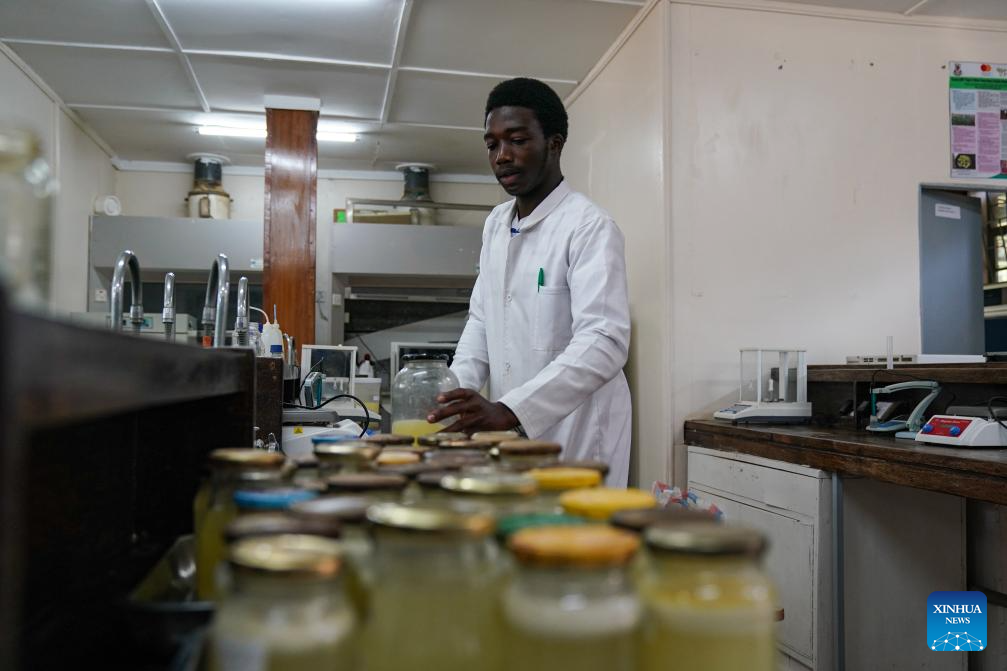
A Kenyan graduate student works at the China-Kenya Belt and Road Joint Laboratory on Crop Molecular Biology at Egerton University in Nakuru County, Kenya, on Sept. 18, 2023. (Xinhua/Han Xu)
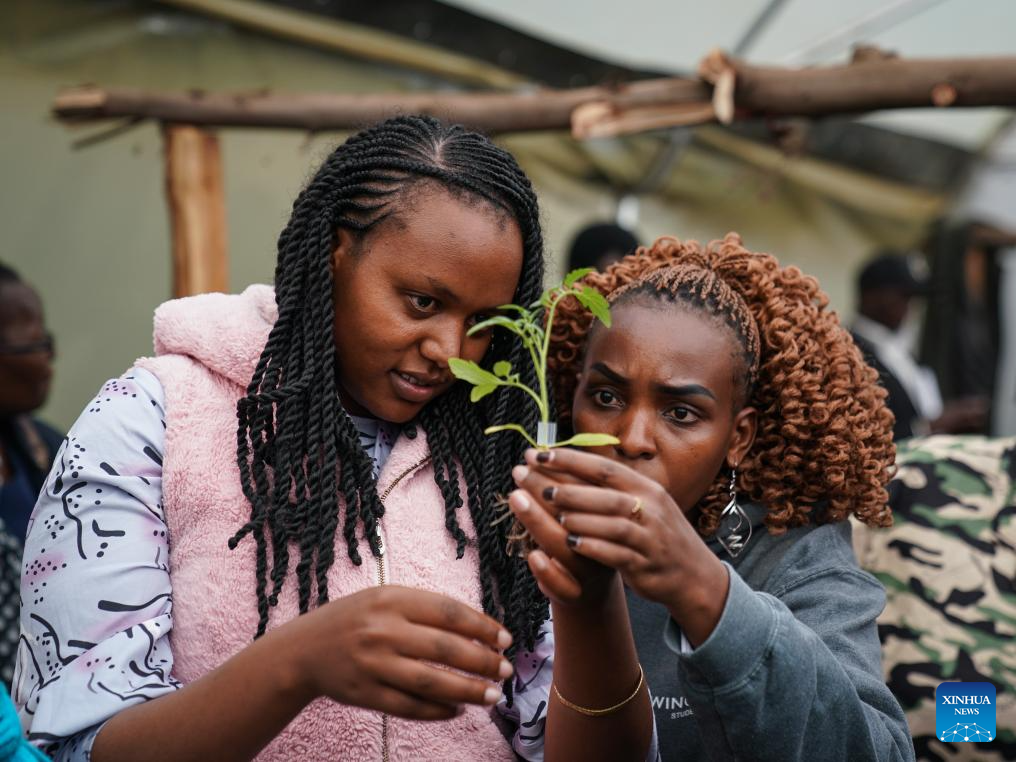
Kenyan trainees observe a seedling in Matangi Tisa Village of Nakuru County, Kenya, on Sept. 18, 2023. (Xinhua/Han Xu)
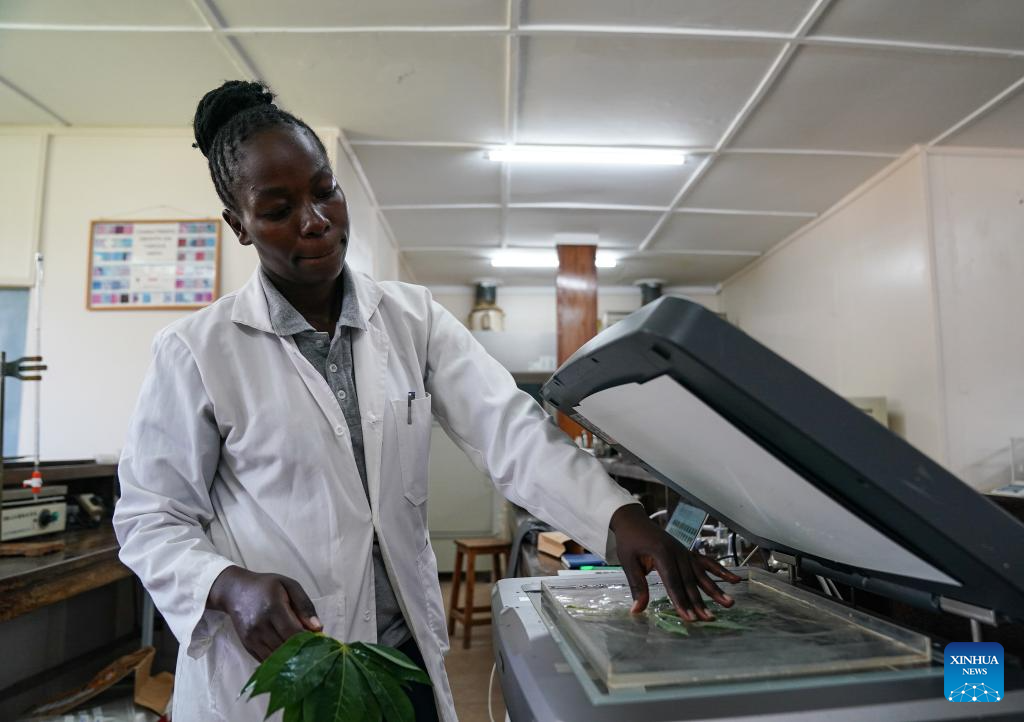
A Kenyan graduate student works at the China-Kenya Belt and Road Joint Laboratory on Crop Molecular Biology at Egerton University in Nakuru County, Kenya, on Sept. 18, 2023. (Xinhua/Han Xu)
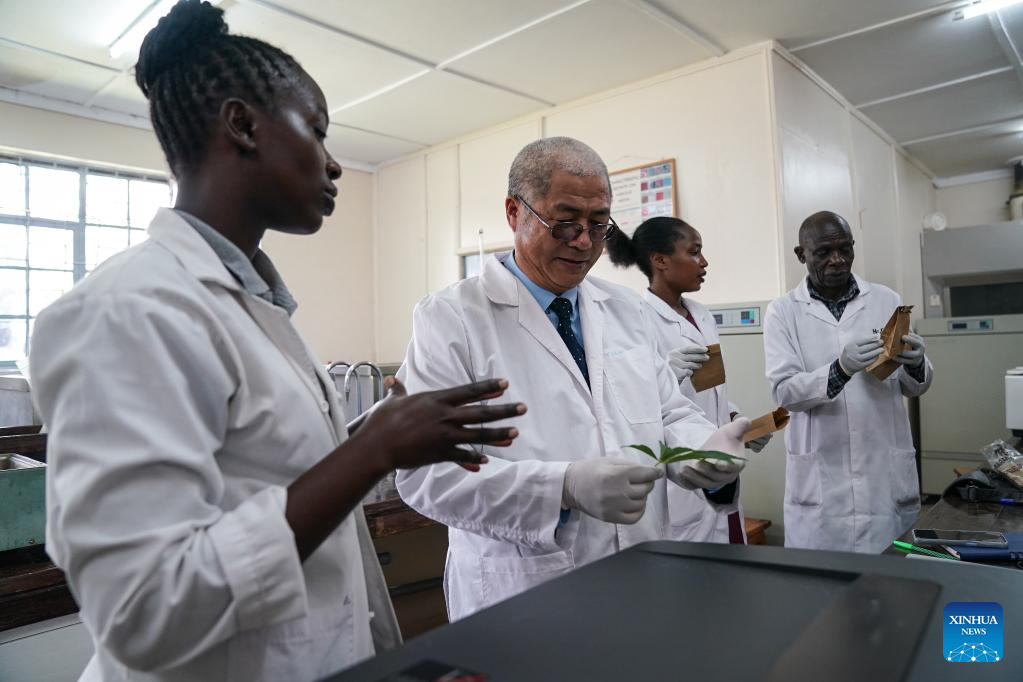
A Chinese professor instructs Kenyan graduate students at the China-Kenya Belt and Road Joint Laboratory on Crop Molecular Biology at Egerton University in Nakuru County, Kenya, on Sept. 18, 2023. (Xinhua/Han Xu)
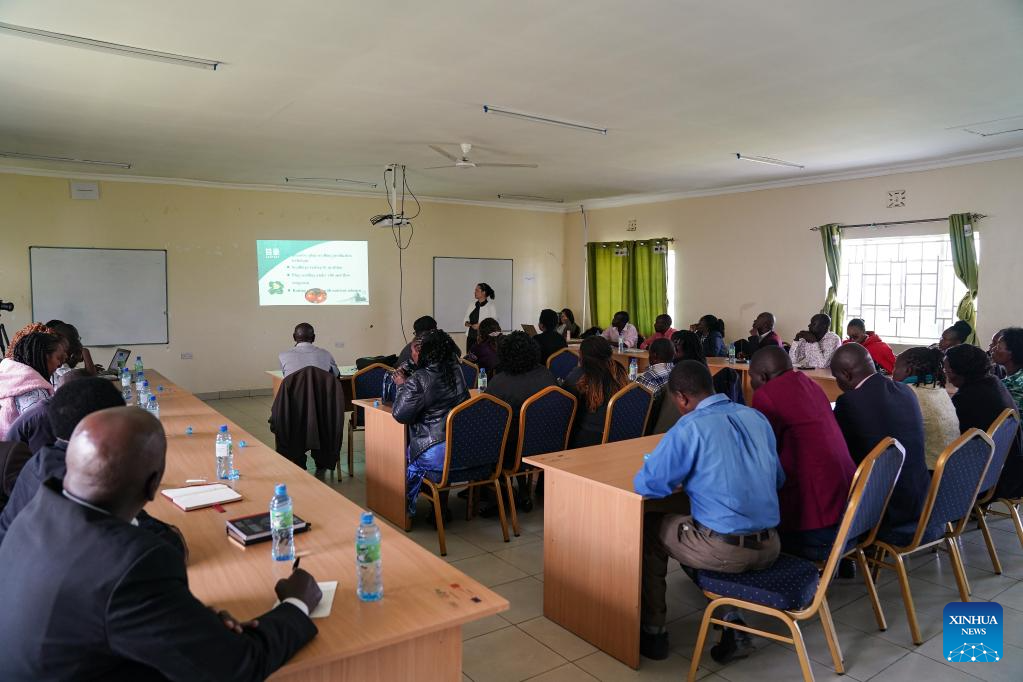
People attend a tomato cultivation training class at a demonstration village for China-Africa Agricultural Development and Poverty Reduction in Nakuru County, Kenya, on Sept. 18, 2023. (Xinhua/Han Xu)
Photos
Related Stories
- China's agricultural product prices edge down
- Feature: Chinese-built expressway offers Kenya's minibuses savings amid high fuel costs
- 30th China Yangling Agricultural Hi-tech Fair opens
- Wanchang Town in NE China's Jilin embraces harvest season of paddy rice
- Chinese companies take center stage at int'l agricultural expo in Egypt
Copyright © 2023 People's Daily Online. All Rights Reserved.









